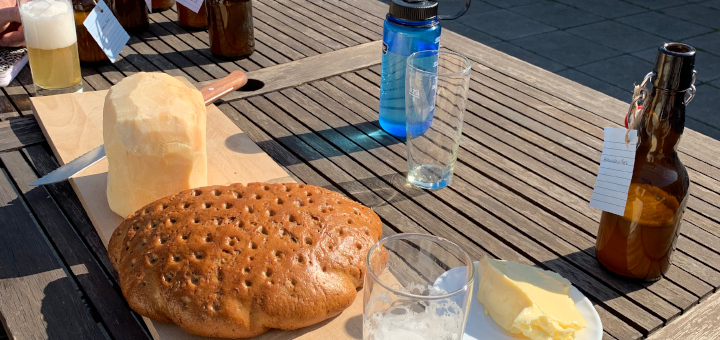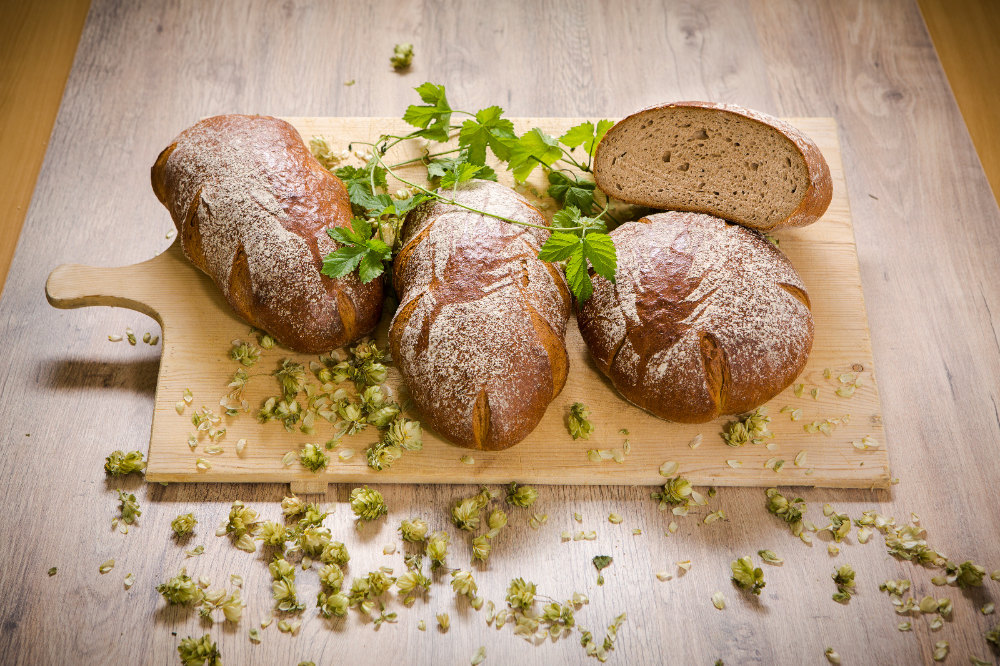The Tutoring Session

Because of the feedback from the examiners (and the tears that had fallen), I set up some time with my baking instructor to find out where I was going wrong with loaf forming. He asked if he should prepare some dough for practical instruction, but I had preferred to dive into the theoretic side of the process; understanding what was supposed to be taking place would be of more use to me.
A couple days before our scheduled session, the class had been provided topics for our oral exam in pedagogy. We drew numbers from a hat that corresponded to a baking topic. As luck would have it, my topic was loaf forming. I informed my baking instructor of the serendipity; he suggested I find a way to switch to another topic. Despite his misgivings, I felt that this happenstance provided the needed additional drive for me to conquer this process.
Since I had the opportunity to have a one-on-one session, I prepared a couple of topics to discuess beyond loaf forming: starters and ingredient quality. And as I had just returned from a weekend back in Erfurt, I provided homemade cheddar and home-brewed beer (one beer recipe made with three different types of yeast). He provided a fresh loaf of bread and the butter. We sat outside on the terrace in the sun. This afternoon turned out to be the high point in my six months in Dresden.
We kicked off the afternoon with an in-depth discussion on loaf forming, what errors can occur, how to avoid them, how much flour to involve, and how long one has to complete the process. I learned more in that half hour than I could by simply “practicing” for so long. His explanations also provided an excellent foundation for my upcoming oral exam structure. I only need to restructure the training so my student would not cry.
We switched topics to starters (or sponges) and discussed the differences and properties of Poolisch, Kochstück, Bruhstück, Quellstück, Aromastück, and Autolysestück. He pointed out which were bogus and which provided additional value to a product. In our lectures, we discussed what these were, but I had not yet grasped the practical application.
We rounded out the afternoon with a quick discussion on how one may adjust recipes based on the available ingredients and their quality. Each of the recipes I had accumulated involved types of flour that are unavailable in the USA. The rye flours for purchase in the US are not as varied as those in Europe; this is obviously due to demand. Were I to make a bread back in the states, I would have to rely on whole-grain rye rather than a “lighter version” with less of the bran included. Additionally, the quality of the grains available in the US are substandard to that in Europe. He pointed out how one would go about reworking the recipe given the flour available. However, he emphasized, one can only do so much with poor-quality ingredients.
I will always look back on this evening as a very fond memory. I got to better know the baker manning the oven; a guy who can crush your ego in a matter of minutes. The fact that he stayed after hours to explain some miscellaneous topics showed that he was a good teacher, was passionate about the profession, and wanted to help me. This guy became someone to remain in contact with.
And despite his misgivings in my loaf forming skills, my oral exam grade in pedagogy was tied with two others for the best in the class. Having a theatre background was definitely an advantage, but that tutoring session went a long way in preparing me for teaching that same topic, which, after all, is my goal in being on this adventure.


